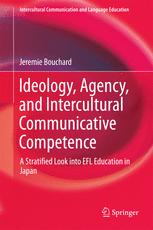

Most ebook files are in PDF format, so you can easily read them using various software such as Foxit Reader or directly on the Google Chrome browser.
Some ebook files are released by publishers in other formats such as .awz, .mobi, .epub, .fb2, etc. You may need to install specific software to read these formats on mobile/PC, such as Calibre.
Please read the tutorial at this link: https://ebookbell.com/faq
We offer FREE conversion to the popular formats you request; however, this may take some time. Therefore, right after payment, please email us, and we will try to provide the service as quickly as possible.
For some exceptional file formats or broken links (if any), please refrain from opening any disputes. Instead, email us first, and we will try to assist within a maximum of 6 hours.
EbookBell Team

4.3
68 reviewsAssociated with an important epistemological shift from language proficiency to language criticality in applied linguistic research, this book provides a sociological perspective on foreign language education in Japan. By employing ethnographic methods to investigate the relationship between three core analytical elements – foreign language education geared towards the development of learners’ intercultural communicative competence; nihonjinron and native-speakerism as potentially constraining ideological forces; and EFL practices observed at four Japanese junior high schools – the author not only shares valuable insights into how English is taught and learned in a stratum of the Japanese EFL system which has received limited attention from researchers over the years, but also clarifies the fundamental and complex changes currently taking place in the Japanese EFL landscape.
This multi-faceted book also calls for greater consideration in postmodern ideology critique for the stratified nature of social processes as well as the material conditions and underlying generative mechanisms involved in the production and consumption of (including resistance to) ideological discourse. Accordingly, it outlines several challenges shaping ideology research in educational settings, and responds by developing a realist-oriented theoretical and methodological approach to address these challenges. This book serves as a unique point of reference for the study of parallel nationalist discourses embedded in foreign language education systems around the world.